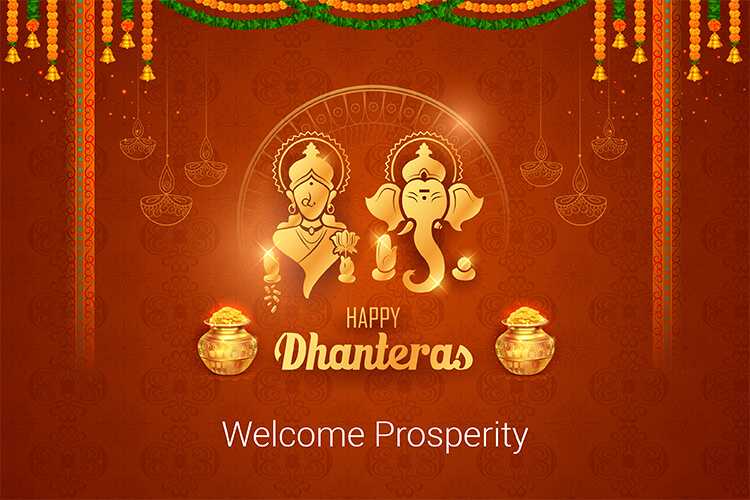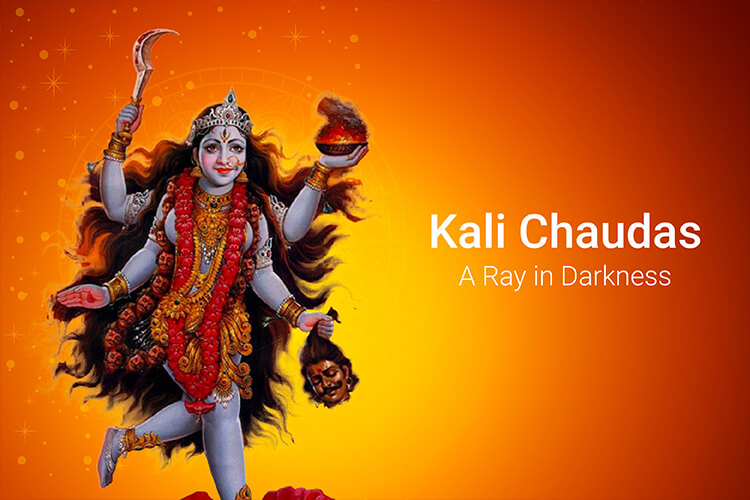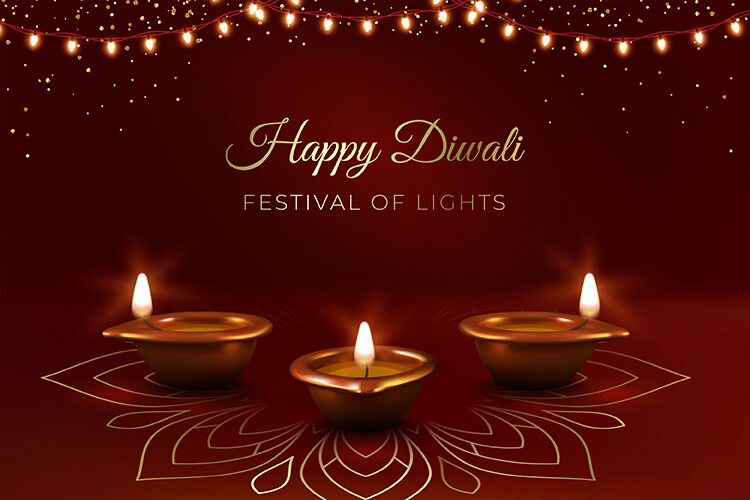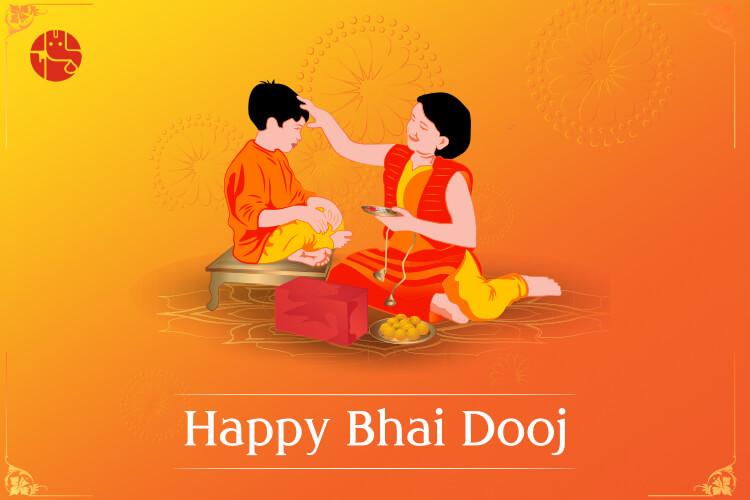Lifestyle
Celebrate Five Days Of Diwali To Light A Lamp Of Love!
Diwali is the festival where the whole world is submerged in the divinity of light, prosperity, health, and wisdom. On this day, the entire universe transforms into the land of myriads lamps and illuminates the whole world like a milky way.
Diwali is the festival where the whole world is submerged in the divinity of light, prosperity, health, and wisdom. On this day, the entire universe transforms into the land of myriads lamps and illuminates the whole world like a milky way. The festival of Diwali has its own charm and grandeur as it generates peace and humanity among people and promotes brotherhood in society.
The word Diwali comes from the Sanskrit word Deepavali, meaning “rows of lighted lamps”. It is celebrated on the 13th or 14th day in the Hindu month of Kartika Masa (October – November). It celebrates good over darkness and has its own inner significance than mere lighting diyas, wearing new clothes, and bursting crackers.
The main essence of the festival lies in “Tamaso ma jyotirgamaya”, which means darkness to light. Similarly, we have to dispel the darkness from our lives by lighting the lamp of happiness, prosperity and knowledge within our hearts.
The History & Significance Of Diwali
The dazzling festival of light, Diwali, can be traced back to the old days when the goddess Laxmi was to be wedded to Lord Vishnu. It is believed that Diwali marks the commutation of their blissful marriage. Others believe that Diwali is the celebration of Goddess Laxmi Birthday, as it is a widespread belief that she was born in the month of Kartik Purnima.
In Bengal, the day is dedicated to Mother Kali, the goddess of darkness. Lord Ganesha, the head of wisdom and auspiciousness, is also worshipped on the auspicious night of Diwali.
Diwali also celebrates the 14-year triumph of Lord Rama over the demon Ravana during his exile and homecoming. As a joyful celebration of their king’s return, the inhabitants of Ayodhya, Rama’s capital, lit clay diyas (oil lamps) and burst firecrackers.
Also Read: Happy Diwali 2021 Wishes, HD Images, Greetings, Quotes, and Messages to Share
Deepawali 2021 Dates & All
We will all be celebrating the festival of lights this year with a lot of excitement, but the event would be incomplete without an accurate date and time. Therefore, here is a list of the actual day and time of Diwali and other festivals associated with the festival of lights.
Amavasya Tithi – Begins 06:03 on Nov 04, 2021, and ends at 02:44 on Nov 05, 2021
- Day 1 – Nov 1, 2021, Monday: Ekadashi
- Day 1 – Nov 1, 2021, Monday: Govatsa Dwadashi
- Day 2 – Nov 2, 2021, Tuesday: Trayodashi (Dhanteras)
- Day 3 – Nov 3, 2021, Wednesday: Chaturdashi (Kali Chaudas)
- Day 4 – Nov 4, 2021, Thursday: Amavasya (Deepawali)
- Day 5 – Nov 5, 2021, Friday: Bhai Dooj
Importance Of Kartik Purnima And Its Ritual
According to popular belief, Lord Shiva and Lord Vishnu visit the earth in the month of Kartik. Thus several devotees believe that paying homage to them on this day is highly beneficial. People go to temples, bathe in the holy river, and light diyas as rituals. The day is dedicated to Dev Diwali, Tripuri Purnima, and the Diwali of the Gods.
As the name suggests, this holy month is also devoted to Lord Kartikeya.
Tripuri Purnima – Lord Shiva’s triumph over the Tripuri demons is commemorated on this day. Because of this, the day is referred to as Tripurari Purnima by devotees. It is an important day to please Lord Shiva. Moreover, Lord Vishnu manifested in the Matsya (fish) avatar on this day.
On this auspicious day of Kartik Poornima, some devotees even marry “Tulsi” and “Shaligram” for the well-being of their families.
On the banks of the sacred river, devotees do a thorough aarti. Ashwamedha Yagya, which occurs on Kartik Poornima night, is thought to be attainable via profound daan. According to popular belief, DEEP DAAN on Kartik Purnima aids in ancestral redemption by enhancing one’s name, reputation, and financial well-being.
On this auspicious day, people pay homage to ‘Trijata Laxmi,’ or Goddess of Wealth. Ashok Vatika’s Trijata Lakshmi is credited with saving Mata Sita. Women worship Trijata Lakshmi to attract their ideal life mate.
Moreover, devotees clean and renovate their homes on this day as a sacrifice to the deity. Lord Kuber is also worshipped on this day to get his blessings and a constant source of wealth.
This Diwali gets rid of all your financial foes by Talking to our astrologer!
The Five Days Of Diwali
Diwali is a festivity that transcends cultures and faiths, uniting people from all walks of life. That is the sole reason why Diwali is India’s most celebrated festival. Everyone may find something to do during the five days of Diwali, from educational poojas for religious seekers to all-night card parties.
Diwali’s five-day celebrations continue for nearly a week, with festivities spanning five days and aftershocks popping up here and there during the last two. Each day, a different philosophy or ideal is explored as part of the festival’s five main themes. As a result, throughout the five days of celebration, individuals use their intellect to rejoice to improve their quality of life.
It’s an actual market event, with everything from a local jeweller to a local potter at sight. Much is accomplished, and even the weakest and most neglected segments of society can earn money legally through this commercial practice. Additionally, one may seek Lord Kuber’s blessings by purchasing a Kuber yantra.
Govatsa Dwadashi
The festival of Diwali starts with the Dwadashi. Dwadashi is the first day of the Diwali festival in which the worship of Cow takes place. In Sanatan Dharam, cows are considered to be important among gods.
As per the story, Lord Indra was enraged and threatened to drown the village of Gokul. Lord Krishna rescued the inhabitants of Gokul from Lord Indra’s wrath by raising the Govardhan Mountain. It is a holy mountain, which has been worshipped since time immemorial.
On this day, Mathura and Nathdwara also attract crowds to temples, where deities are ritualistically cleansed and ornamented. This day is also known as ‘Padwa’ since it marks the beginning of Vikram-Samvat. Most homes celebrate this day by purchasing new clothing and jewellery, visiting family members, and sharing sweets and presents with friends and neighbours.
Additionally, this day is referred to as Govatsa Dwadashi, Vasubaras, or Nandini Vrat. According to the Hindu calendar, it occurs on the 12th day of Krishna Paksha in the month of Ashwin. Vasu Baras falls on Monday this year, Nov 1, 2021. Maharashtrians observe this event to a greater extent.
Dhanteras

The second day of Diwali is known as Trayodashi, aka Dhanteras. It falls on the 13th day of the second half of the lunar month. For Hindus, this is a highly auspicious day for buying new utensils, gold or silver articles.
Dhanteras sets the optimistic and celebratory mood for the Diwali celebrations. The main aim of this festival is to increase wealth and prosperity. On the day of Dhanteras, many households worship Goddess Laxmi. The day also pays homage to Lord Dhanwantari, who is associated with Ayurveda and various healing practices for the well-being of humanity. On this day, it is customary for devotees to take a holy bath at sundown, burn a diya lamp around a ‘Tulsi’ plant, and pray to Lord Yama for protection. On this day, individuals perform ‘havan’ and recite powerful mantras.
Also Share: Dhanteras 2021 Wishes, Quotes, Greetings, Messages, and HD Images to Share with Friends and Family
Kali Chaudas

The third day of Diwali is known as Chaturdashi. Hindus mark the second day as ‘Narak Chaturdashi’. On this day, Lord Krishna killed a fierce demon named ‘Narakasur,’ who captured the ‘gopis’. This day is observed by keeping the house clean and using scented oils and flowers to raise one’s vibration. Every home has a ‘rangoli,’ a decorative design formed from a rice flour and water combination, which may be seen on the threshold. During the night, diyas are placed in each room and the backyard.
Kali means dark and evil, and Chaudas means fourteenth. As a result, it is observed on the fourteenth day of Ashwin Diwali. Kali Chaudas is a day dedicated to the worship of Maha-Kali or Shakti, and it is thought that Kali was responsible for the death of Raktavija. It is also known as Narak Chaturdasi. It is a day to abolish laziness and evil, which create hell in our life.
Procrastination is the biggest obstacle to success. So, Ask an expert and know-how to overcome your laziness.
Deepawali

The Fourth day is Diwali, the main festival and most loved festival among Hindus. It is the celebration of light. On this day, Lord Rama returned from exile and was greeted by a sparkling row of rays emanating from every household. The term ‘Deepavali’ refers to a kaleidoscope of lights. Additionally, it corresponds to the Pandavas’ return from the jungle. Diwali is, without a doubt, one of India’s most energising and significant festivals.
Buyers feel abundant when it comes to making new purchases in the marketplace. The landscape is brightened with well-lit residences, parks, and public spaces on the night of light, while colourful fireworks light up the sky. Every household is in full-fledge preparation for Lakshmi puja, the Hindu festival honouring the Goddess of Wealth. Family members engage in the ceremonies and offerings while a pandit conducts the puja ceremoniously.
After that, sweets and ‘prasad’ are distributed. As a part of their “Chopda Pujan,” businessmen open their new year’s accounts on this day. The day is considered to be auspicious to start a new company or make a strong business proposal. Throughout West Bengal, the night is devoted to the veneration of Kali, the Hindu deity.
Bhai Dooj

Finally comes the Bhai Dooj, which marks the culmination of this five-day Hindu celebration. The festival is unique as it reveals the profound love between brother and sister. The event is related to the mythical stories of Lord Yama and his sister Yami’s brotherly love. One day, Lord Yama decided to pay a visit to his sister after several decades of isolation. When he met her, he was moved by her kindness and friendliness. Yami greeted her brother with pomp and circumstance, placing a tilak on his forehead to commemorate the occasion. Yamraj praised her and said that any brother who greets his sister on this day would have a long life in the future.
On Bhai Dooj, the brother’s forehead is adorned with “Tikka” with rice and vermilion, followed by sweets. Typically, a supper consisting of unique dishes and sweet delights is served afterwards. The brother swears to safeguard his sister from difficult situations while the sister prays for his long life. Given the ongoing nature of their relationship, this day is eagerly anticipated by all sisters and brothers.
Also Share: Happy Bhai Dooj Wishes and Images in English 2021: Download Photos, Quotes, Messages, Greetings to Share
Diwali in Other Places
The festival of lights is not only restricted to India but also celebrated in several other countries, including Tobago, Nepal, Suriname, Mauritius, Singapore, and Fizi. People all across the world hold jubilant celebrations and regard this festival to be auspicious. They consider it to be a reminder of the victory of light over darkness in the universe.
How Do People Celebrate Diwali?
Just as the stories of Diwali differ from place to place, so do the traditions and celebrations associated with the festival, which vary depending on the culture and location. The profusion of sweets, family get-togethers, and the burning of clay diyas are the things that are universal to many cultures, regions, and individuals on this day. The lighting of diyas represents the illumination of the soul, which shields the home from the evils of darkness.
Cleaning the house, doing puja, making and distributing sweets, decorating the home with lights and rangolis, and celebrating with friends and family while feasting and watching fireworks are some of the traditional Diwali rituals and activities observed throughout India.
Will fortune bless you? Read Your Daily Predictions.
Conclusion
Dhanteras, Chaturdashi, Diwali, Govardhan Puja, and Bhai Dooj are the five days of Diwali. Diwali is the ideal time to launch a new business. This is a blessed day, and we should worship Lord Ganesha and Goddess Laxmi in our houses to attract health, wealth, happiness, and success.